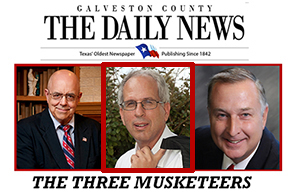


 Your Are Here: Home > Weekly News Columns > America's Trade Deficit
Your Are Here: Home > Weekly News Columns > America's Trade Deficit
Last Week: |
 |
Next Week:
|
| America's Trade Deficit | ||
April 10, 2017 Recently the US trade deficit had risen to nearly five year highs. Countries wisely measure their balance of trade subtracting goods/services imported from goods/services exported. When there are more imports than exports, a deficit occurs. In 2016, the U.S. deficit increased to $500 Billion (a loss of 3% to our economy). Negative of trade deficits, in part, forces us to borrow money and lose the benefit of employment. The U.S. has experienced a deficit since the 1970’s being driven by oil imports in the early decades, but more recently imbalances are due to imports of autos, toys and electronics. We have also experienced an export of middle class employment, mainly from the manufacturing sector. Trade is an essential part of our country’s economy. If one nation possesses an abundance of an important resource not available in another the two solve this imbalance by establishing trade agreements. But when a country unfairly takes advantage of another to create negative imbalances, they harm the economy of the other. America’s trade deficit is primarily from four nations: Trump gave us another example where cheaters set up shell companies with no assets against which trade violations can be levied. He added future practices should require companies to be bonded before they can trade in us. We acknowledge world trade is critical to the U.S. It is essential for our economic health and well being. However, we cannot continue to allow cheaters to use unfair trade practices such as tax benefits and subsidies granted by foreign nations therefore lowering their costs of imports, or one-sided protective practices through high import taxes employed by foreign governments. Not paying due attention to trading practices over the past several decades has resulted in loss of our national wealth and self-sufficiency. Hardest hit is the middle-class worker, particularly in skilled manufacturing jobs. The President and his Commerce Secretary have already begun the most important task of resolving unfair trade practices. If they’re successful it will have the effect of returning offshore wealth to our nation and sparking investment in America again. Mark, Bill and John |
||